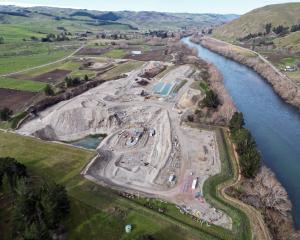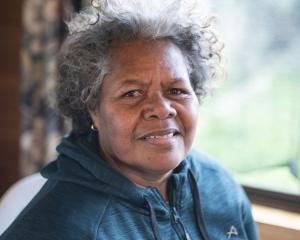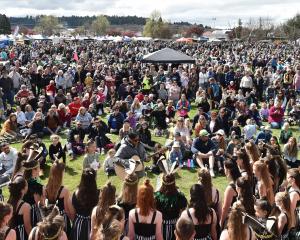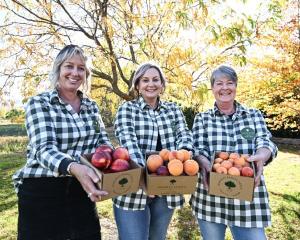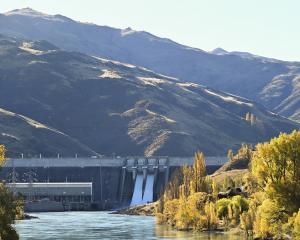A proposal to plant cherry and grape crops on the shores of Lake Dunstan at a popular boating destination near Clyde drew a negative response yesterday from the Clutha Management Committee.
Land Information New Zealand (Linz) has received an application from Glen Callanan, of Clyde, to use part of the legal bed of Lake Dunstan to grow cherries and grapes. Although the land is legally defined as lake bed, it is dry land, APL Property Ltd property manager Jeff Reidy told the committee yesterday.
APL has the property management contract for Linz. Mr Callanan would take water from McKenzie Creek and store it in a reservoir on the land, and pump it up the hill to tanks and gravity feed the crops, Mr Reidy said. He had water permits from the Otago Regional Council for the operation.
''We understand the subject area may be a reasonably popular boating destination for picnicking or water skiing. While any lease or licence would be set back 20m from the wet bed of Lake Dunstan, we note the applicant intends to fence crops to prevent public access to these areas,'' Mr Reidy said.
''We consider the proposed activities will also result in a significant change in the landscape, which will affect visual amenity and which may also be of concern to the public.''
Mr Reidy was unsure if resource consent was needed from the Central Otago District Council, but said that would be ''an avenue for the public to have a say''.
He also wanted feedback from the committee before Linz considered the proposal. Committee chairman Gordon Stewart said if the cherry trees were enclosed in nets, that would have a significant visual impact.
''I can't imagine bird scarers being too popular with picnickers either.''
Committee member Steve Battrick said it was a ''very well-used'' recreational area in the summertime, and the crops would restrict recreational opportunities, so he was opposed to the proposal.
The effects on the landscape could be addressed during the resource consent process, committee member Clair Higginson said.
It would have to be a publicly notified resource consent.
The land is subject to an easement by Contact Energy and the committee was told Contact had given its consent to the proposal.


